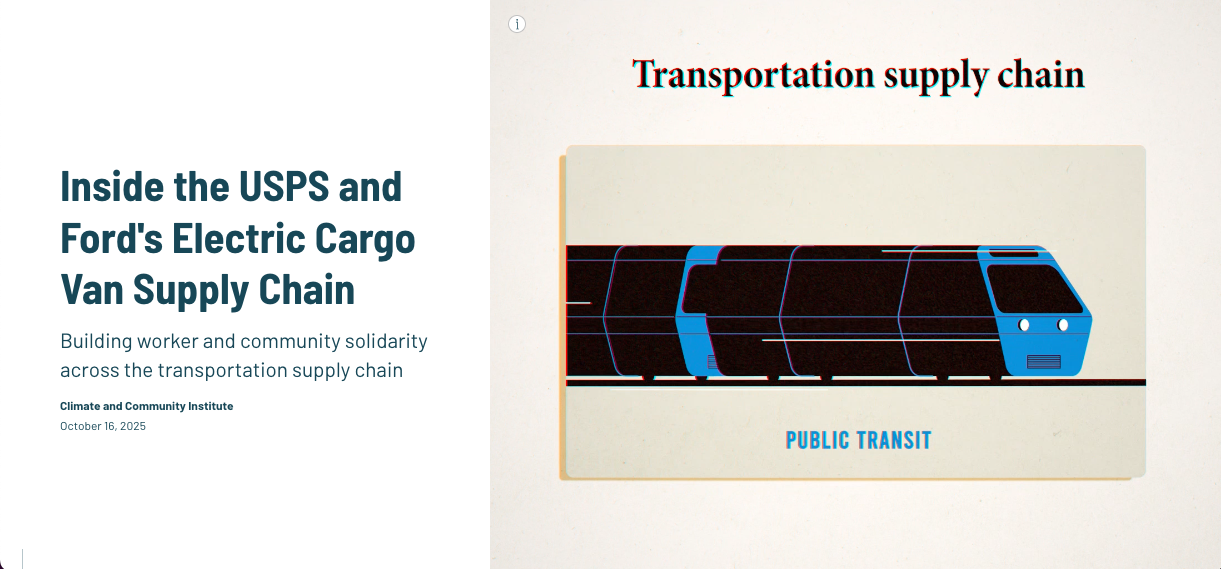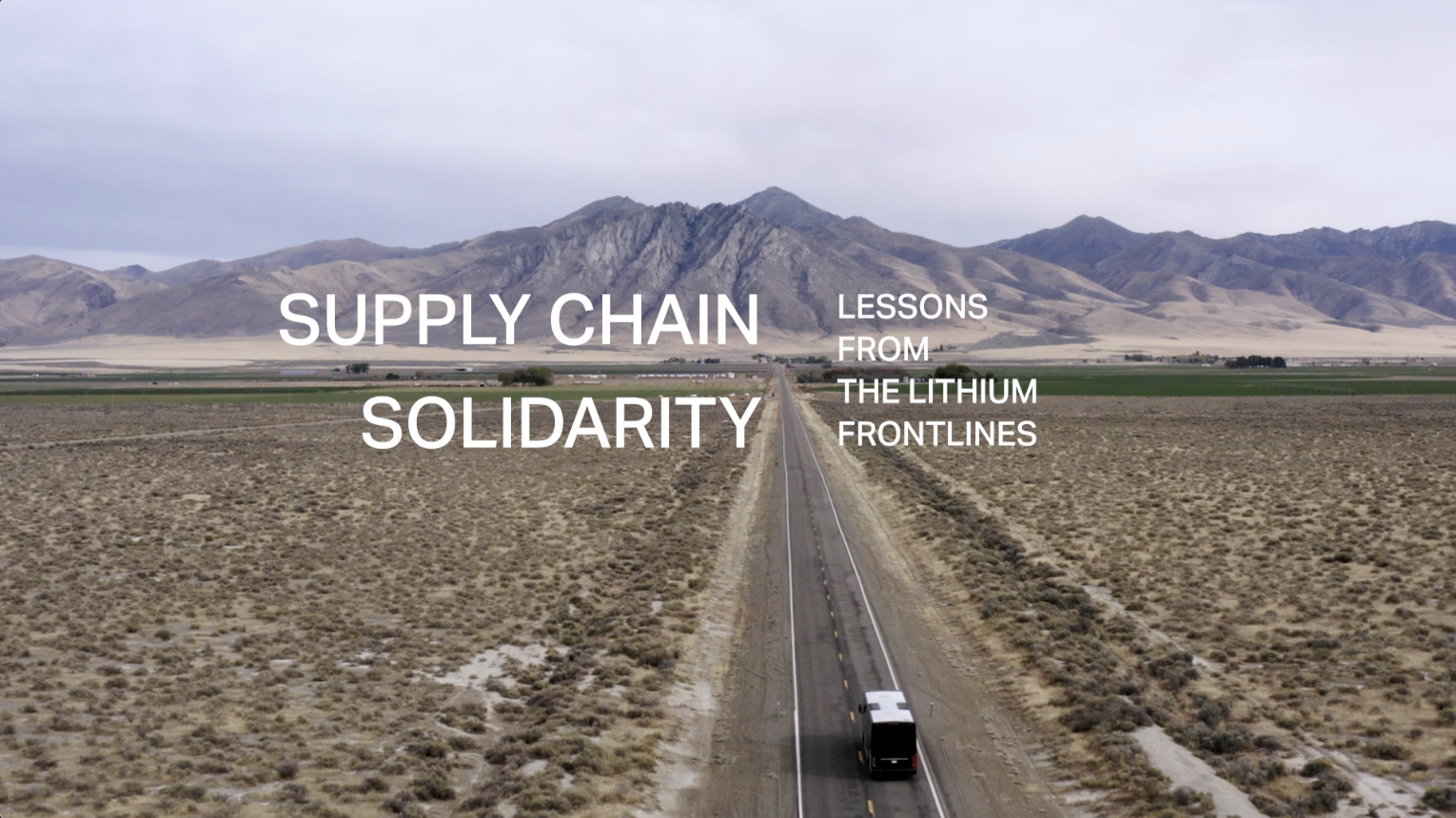Supply Chain Solidarity Principles
The transition to zero carbon transportation has initiated major social and economic shifts: a boom in new mine development to supply transition minerals needed to manufacture millions of new electric vehicle batteries; a restructuring of the auto manufacturing industry, with shifting factory locations and outputs and joint ventures between auto makers and battery companies; a shift to private electric automobiles overshadowing needed improvements to transportation systems for people who do not drive. As it is currently unfolding, the transition will leave behind workers, nondrivers and impacted communities along the supply chain. But these communities have an opportunity to join forces, gain power, and take control of their futures.
In October 2024, CCI convened a group of 25 workers, organizers, and advocates representing different parts of the transportation supply chain. The group journeyed to Nevada to tour the frontlines of new lithium mining in the United States. These participants included UAW auto workers, transit riders, Amazon delivery drivers, a transit mechanic, Indigenous and mining justice advocates, and community organizers of various stripes. They met with people from local impacted communities to learn how decisions made across the supply chain ripple out to people and lands in rural Nevada. They also began dialogue with each other to understand how each of their struggles were related and connected. You can watch a film of the journey here.
The Principles
The Solidarity Principles for the Transportation Supply Chain and the Energy Transition are the collective work of individuals rooted in multiple regions of the US and places in the transportation supply chain. We believe in a transportation supply chain that puts workers, transit riders, and other community members first, addresses historic injustices, minimizes harm, and supports the flourishing of diverse human and non-human communities. To that end, this document presents shared principles of supply chain solidarity for struggles over Indigenous, climate, environmental, economic, racial, ethnic, and gender justice across borders and industries. If we act on them, we can steer our supply chain toward the just, sustainable, and livable future we need.
Read more:
Take Action
You can join the movement by signing onto the Solidarity Principles for the Transportation Supply Chain and the Energy Transition.
We believe in a transportation supply chain that puts workers, transit riders, and other community members first, addresses historic injustices, minimizes harm, and supports the flourishing of diverse human and non-human communities. We present shared principles of supply chain solidarity for struggles over Indigenous, climate, environmental, economic, racial, ethnic, and gender justice across borders and industries. We invite workers, organizers, and community members who are willing to stand strong together and fight for justice to sign on.
Case Studies




